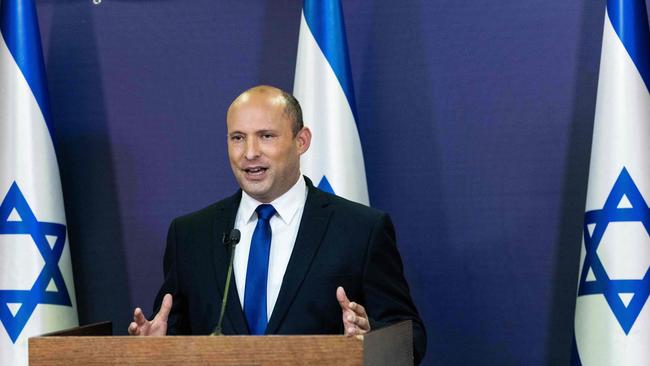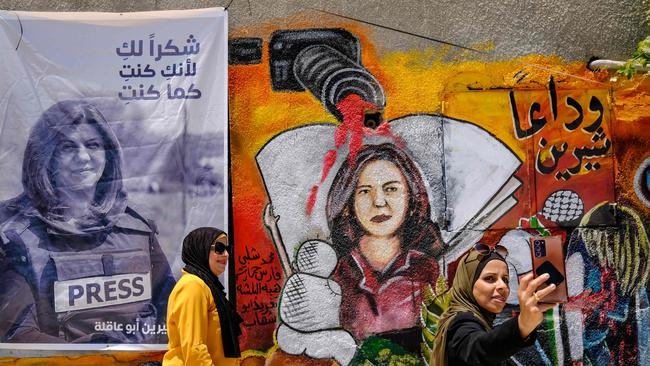Israeli government teeters on brink, after another lawmaker quits
The coalition now has a minority of seats in parliament, opening up the possibility that Israel could face its fifth election in a little over three years.

Israeli Prime Minister Naftali Bennett’s government is facing a new threat to its existence after a second lawmaker quit the ruling coalition Thursday, leaving it with a minority in parliament less than a year since coming to power.
Ghaida Rinawie Zoabi, an Arab lawmaker from the left-wing Meretz party, in a letter to Mr Bennett and Foreign Minister Yair Lapid on Thursday, said she was resigning from the coalition because it was adopting too many right-wing positions and shunning its left-wing partners.
The sudden resignation of Ms Rinawie Zoabi means Mr Bennett’s coalition now controls only 59 of 120 seats in the Knesset, Israel’s parliament. The opposition needs 61 lawmakers to vote to dissolve the parliament and send Israel to its fifth election in a little over three years.
Ms Rinawie Zoabi, who was appointed to serve as Israel’s consul in Shanghai but removed her candidacy on Thursday for any government position, didn’t clarify in her letter whether she would vote to dissolve Israel’s parliament. She still hasn’t decided whether to vote to bring down the government and will make a decision in the coming days, said a person familiar with her thinking.

A vote to dissolve parliament could come as early as Wednesday, according to some Knesset officials, when private bills from lawmakers can be brought to the plenum.
Also on Thursday, the Israeli army announced that it wouldn’t immediately launch a criminal investigation into the killing of Palestinian-American journalist Shireen Abu Akleh, who was killed in the Jenin refugee camp last week. The military, however, didn’t rule out the possibility of launching one in the future.
In her resignation letter, Ms Rinawie Zoabi said her reasons for leaving the coalition were due, among other things, to Israeli police beating Palestinians at the Al Aqsa Mosque in Jerusalem last month. Israeli police said they were responding to riots at the site. She also cited beatings of mourners at the funeral of Ms Abu Akleh. The Israeli police have launched an investigation into the conduct at the funeral.
“Unfortunately, in recent months and for narrow political reasons, the coalition’s chiefs have preferred to preserve and strengthen the right-wing side,” Ms Rinawie Zoabi wrote in her letter. “I cannot keep supporting a coalition that shamefully harasses the society I come from, ” she added.
The crisis faced by the government began last month, after Idit Silman, the coalition’s de facto whip and a member of Mr Bennett’s right-wing Yamina party, resigned from the coalition over disagreements about the country’s Jewish character.
Other lawmakers from Mr Bennett’s right-wing Yamina party and the Islamist Ra’am party have threatened to leave the coalition.
Asher Cohen, a professor of political science at Bar-Ilan University, said he isn’t sure the opposition will have enough lawmakers to dissolve the government. The Ra’am party could be at risk of being voted out entirely in a new election. While right-wing lawmakers who previously threatened to leave might not find as enticing offers from the opposition, with the coalition on its last legs.

“I’m not sure that on Wednesday that they’ll run for elections,” he said. Mr Bennett’s government came to power in June last year after a mix of left-wing, centrist and right-wing parties, including for the first time an independent Arab party, united in their opposition to former Prime Minister Benjamin Netanyahu. The parties’ deep ideological differences have created an unwieldy alliance. Members have clashed over policies related to West Bank settlements, Palestinians and questions of religion and state.
If Ms Rinawie Zoabi does vote to bring down the government, Mr Bennett would continue to serve as interim prime minister until a new government is formed. The coalition can continue to govern without a majority, but it will struggle to pass laws, requiring support from opposition lawmakers. The current coalition could survive until March 2023, when it needs a majority to pass a budget. Failure to pass a budget would automatically trigger new elections.
Polls show Mr Netanyahu’s Likud party remains the most popular, especially among right-wing voters, but he lacks a clear majority to form a government of his own.
The political crisis comes after a burst of terrorist attacks in recent weeks that has left the government vulnerable to charges from the right-wing opposition that it is weak against terrorism.
Wall Street Journal


